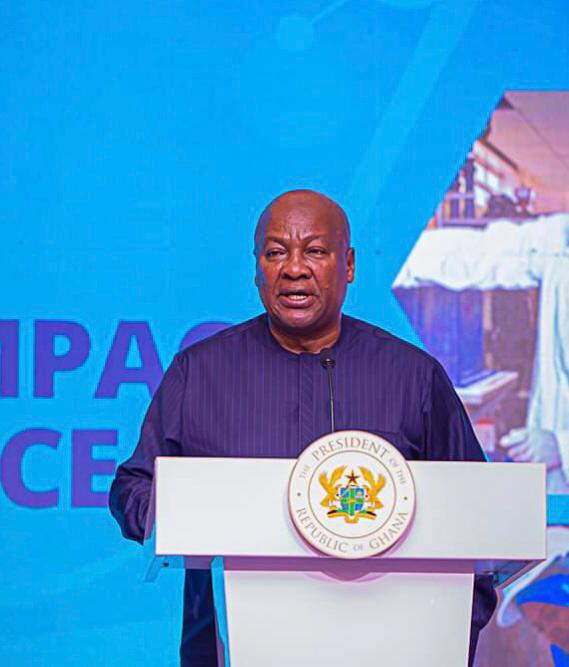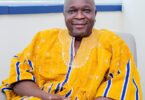Report By: Ishmael Barfi
The President of the Republic of Ghana, His Excellency John Dramani Mahama, has urged African nations to leverage research, innovation, and strategic partnerships to propel the continent’s development.
Speaking at the opening ceremony of the 10th anniversary of the Africa Higher Education Centres of Excellence (ACE), held on Monday, April 7, 2025, at the Labadi Beach Hotel in Accra, President Mahama emphasized that the ACE program is a key initiative in Africa’s efforts to establish a knowledge-based economy and address critical skills gaps in emerging sectors.
The 10th anniversary of the Africa Centre of Excellence was organized by the Association of African Universities (AAU) in collaboration with the World Bank, Agence Française de Développement (AFD), and the Inter-University Council for East Africa.
From April 7 to April 9, 2025, the ACE@10 forum will gather policymakers, university leaders, researchers, and international development agencies to reflect on a decade of progress and strategize for the future.
Event highlights will include exhibitions, panel discussions, academic dialogues, and networking sessions.
The Africa Higher Education Centers of Excellence (ACE) initiative is a partnership between the World Bank and the governments of participating countries, designed to support higher education institutions specializing in Science, Technology, Engineering, Mathematics (STEM), Agriculture, Applied Social Science, Education, and Health.
While addressing the high-profile attendees, President Mahama stated, “The future prospects for the ACE program are very bright. With sustained support from governments, donors, and the private sector, these centers can enhance their impact, foster regional cooperation, and lead Africa’s transition to a knowledge-based future.”
He highlighted the need for higher education to align with labor market demands to reduce graduate unemployment and stimulate economic growth.
“Our continued collaboration in scientific research is vital for addressing some of our continent’s most pressing developmental challenges, from skills gaps and limited digital literacy to high capital costs in critical sectors such as renewable energy,” he reiterated.
To achieve these objectives, President Mahama called for stronger collaboration among universities, industries, and public institutions, ensuring education becomes more responsive and relevant.
He also acknowledged the importance of updated curricula, hands-on training, and clear pathways from academia to the workforce.

AAU@10: President Mahama Urges African Governments to Invest in Research Institutions
President Mahama expressed concern over gender disparities in science and technology, urging academic institutions to implement inclusive policies and create opportunities for women in STEM fields.
He commended ACE centers for providing targeted scholarships and mentorship programs and fostering supportive institutional cultures for women in STEM.
He recognized the necessity to address the unique challenges faced by women in scientific and technical careers.
He reaffirmed Ghana’s commitment to collaborating with both longstanding and new partners to ensure that the next chapter of the ACE initiative yields an even greater impact.
“We consider ourselves not only as beneficiaries of partnerships but as active contributors to a shared vision for Africa’s development,” he stated.
He further emphasized, “Excellence in education, research, and innovation should not be confined by national borders; it must be powered by a shared purpose and collective strength.”
Professor Nana Aba Appiah Amfo, Vice Chancellor of the University of Ghana and guest speaker at the event, revealed that the Africa Center of Excellence for Coastal Resilience at the University of Cape Coast has trained young African scientists to develop integrated solutions to address coastal degradation in various countries across the continent.
According to her, in Senegal, the center has created advanced medical training programs that facilitate complex surgeries, thereby reducing reliance on overseas treatments and improving access to specialized care.
Professor Amfo urged for political will, domestic financing, and policy support from African governments to enable the centers of excellence in their respective countries to operate at their full potential.
Source: www.thenewindependentonline.com








